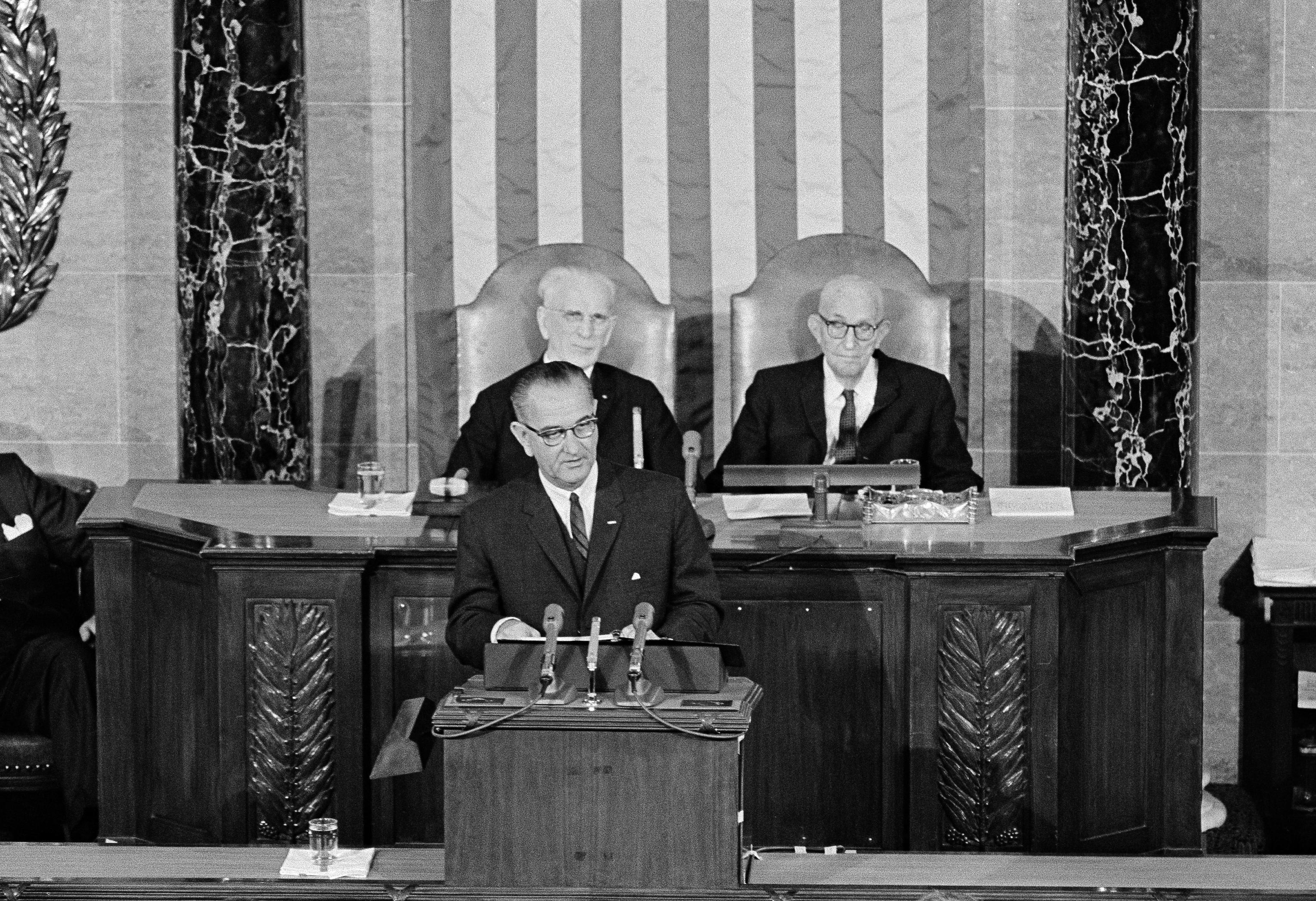The Great Society
In 1964, President Lyndon B. Johnson declared “an unconditional war on poverty.” Johnson was moved not only by the American public, by the Civil Rights movement, and by the media – he was also moved by his own personal experiences teaching in a rural, Texas town in his 20s.
The package of programs that President Johnson put together – known as “the Great Society,” aimed to center both the causes and consequences of poverty and hunger. That package included the 1964 Civil Rights Act and the Food Stamp Act.

Where is it located in the Museum?
“President Lyndon B. Johnson delivers his State of the Union address to a joint session of Congress in the House of Representatives, Jan. 8, 1964.” AP Photo.
Museum Map
LOBBY
THE
WISHING
TREE
WISHING
TREE
THE SNAP CAFÉ
AUDITORIUM
TERRACE RESTAURANT
The Hunger Museum Tour
We Can Solve Hunger —
The Proof is in Our History
The Proof is in Our History
- 1.Welcome
- 2.Welcome
- 3.The Age of Mass Migration - Landing
- 4.The Age of Mass Migration - Main
- 5.Immigration from Europe
- 6.Early Activists
- 7.The Great Depression
- 8.Charity Is Not Enough
- 9.Hunger is No One's Fault
- 10.The New Deal
- 11.Political Compromises
- 12.An Unequal Recovery
- 13.Back Door Exclusions
- 14.Hunger, Justice, and Civil Rights - Landing
- 15.Hunger, Justice, and Civil Rights - Main
- 16.The Walk for Decent Welfare
- 17.Televising the War on Hunger - Landing
- 18.Televising the War on Hunger - Main
- 19.Hunger in America
- 20.The Great Society
- 21.Bipartisan Consensus
- 22.Nixon Works to End Hunger
- 23.The Unmaking of the Great Society - Landing
- 24.The Unmaking of the Great Society - Main
- 25.President Reagan
- 26.The Myth of the Welfare Queen
- 27.Cementing Stereotypes into Policy
- 28.A New Bipartisan Consensus
- 29.Where We Are Now - Landing
- 30.Where We Are Now - Main
- 31.The Pandemic
- 32.Patching our Safety Net
- 33.One Big Beautiful Bill Act Signing Ceremony
- 34."Cry with your full throat, without restraint; Raise your voice like a shofar!" - Isaiah 58:1
- 35.Our Wish for the Future
- 36.End tour
Welcome to the Hunger Museum, a virtual project of MAZON.